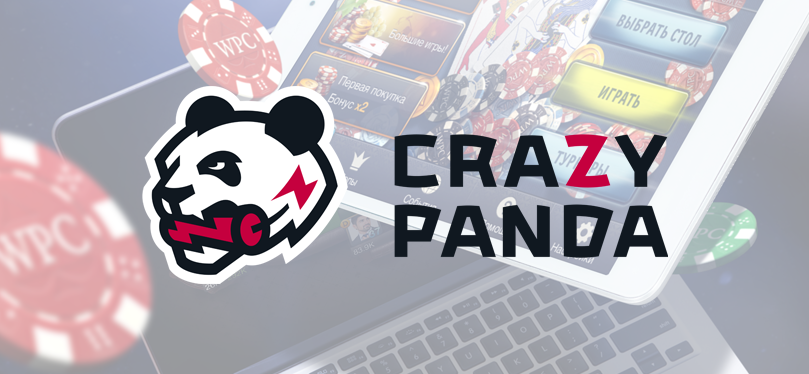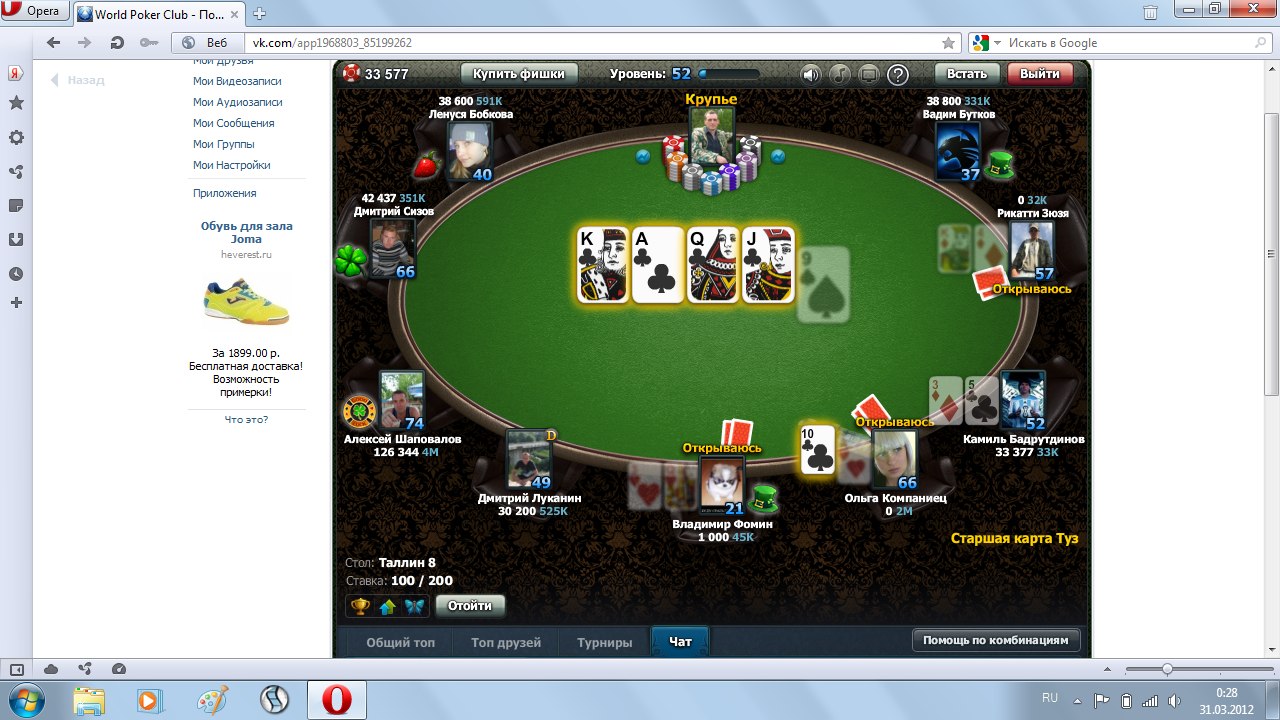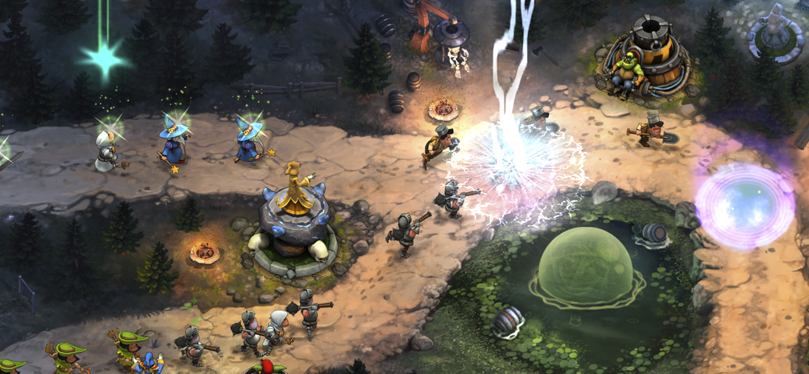"We Built the Company Without External Investments": An Interview with Crazy Panda. The Company Turns 10 Years Old
At the end of July, the Moscow-based game developer and publisher Crazy Panda celebrates its 10th anniversary. We discussed the company's history with its founders, Bogdan Kuznetsov and Oleg Pronin.

About the Company’s History
App2Top.ru: Tell us a bit about yourselves.

Bogdan Kuznetsov
Bogdan: My name is Bogdan Kuznetsov. I'm here with Oleg Pronin to answer the questions. We are the founders of Crazy Panda.
I handle all business matters, while Oleg is responsible for technology. Together, we make the final strategic decisions.
That's how it is now, but how did you get into the industry?
Bogdan: My first encounter with the industry was at Cybico. It was a kind of handheld gaming console where the goal was to release one game per day.
Later, I worked on online games for various brands, and then I joined "Rambler Games", where I met Oleg.

Oleg Pronin
Oleg: My story is simpler. I started working at Rambler and by a happy coincidence ended up on the "mini-games" project, which is where I met Bogdan.
So before Crazy Panda, you worked together on mini-games. Why did you decide it was time to create your own company?
Bogdan: A new social market was opening up with a minimal entry barrier—many were tinkering with things in their spare time to entertain themselves and maybe earn a bit of money. We had a decent background and thought it was worth a try.
Is there any interesting anecdote or a beautiful story about how you decided to start an independent company?
Oleg: No anecdotes or stories. We started the company without any external investments, learned from our mistakes, changed course, celebrated successes, and grew from our errors.
Bogdan: The company was born out of our passion for games and a willingness to take risks. We decided to do what we love, despite the uncertainty and instability of the industry.
By the way, why did you name the company Crazy Panda? It’s always on your logo with a big stick of dynamite.
Bogdan: Firstly, pandas are cute and only evoke positive emotions. Secondly, pandas are unique and rare. We like to think our people are just as exceptional. Crazy—because there has always been and still is a touch of madness in us, and we're crazy about games!
Oleg: As for the dynamite, it originally emphasized the uncertainty of our venture and the crazy component. After the first success, we realized that the dynamite symbolized our ability to "ignite".
You started on social platforms. What did that market look like then?
Bogdan: Look, in May 2007, Facebook launched a platform that allowed third-party developers to release games on it. Zynga was among the first to explore this market.
The first simple games on "VKontakte" appeared by mid-2008. The gaming platform on "Odnoklassniki" came out in 2010. By then, Zynga was already reporting annual earnings of $300 million from Farmville alone.
At that time, two things were obvious to most local developers:
- First—the West quickly saw the emergence of a new, exciting market;
- Second—in the CIS, it was forming as well but lagged a couple of years behind the West.
Inventing the wheel at that time made little sense, so many companies worked by one simple strategy: take what was successful in the West and replicate it in Russia.
At first, this model worked very well.
But you started not with farms, which were very "hyped", but with poker, launching World Poker Club.
Bogdan: Yes. If poker was one of the most profitable niches in the West at that time, in the CIS it was not yet so demanded. For us, it was a fairly obvious choice, though not without risks.

World Poker Club on VKontakte in the early 2010s
Am I correct in understanding that this was an extremely successful project from the start? By 2013, the team had reached 80 people?
Bogdan: World Poker Club launched as the eighth poker on VKontakte, and within a few months, the project hit the tops on Odnoklassniki and Moy Mir. VKontakte wasn't conquered so easily—it took a little more time because there was already a strong player there.
What happened after World Poker Club's success? Did you decide to take on more classic social platform farms?
Bogdan: In fact, we started creating our first farm "Zaporizhzhia" even before the World Poker Club release because it was the next big and interesting niche. By the time "Zaporizhzhia" was in production, "Wonder City" was already in production. We were full of ideas backed by the success of our first projects and wanted to explore different genres—farms, city builders, midcore strategies.
For the first couple of years, you were making games for social platforms. When did you decide it was time to go mobile?
Oleg: We decided as soon as mobile emerged. But of course, the first project was released later, when both World Poker Club and "Zaporizhzhia" were already successful and had a loyal community.
The first "mobile" idea was to create a cross-platform game. We planned to prepare a functional core for the future right away so as not to have to reproduce all the basic features (authentication, payment systems, social interaction, etc.) "from scratch" for each project. So in 2013, World Poker Club appeared on iOS and Android.
Bogdan: But our mobile debut was not actually with that project. Now everyone knows our first mobile as Evil Defenders, but in fact, the first version of this project was a paid game Little Bit Evil. We took a genre we loved, tower defense, and "turned" it around, giving players the chance to side with evil.
After Evil Defenders, we saw new perspectives for ourselves in the midcore direction on mobile and began developing two more projects, which later also released globally—Pirate Tales and Stellar Age.

Evil Defenders
What was in Evil Defenders that made you see it as a new opportunity?
Bogdan: The release of Evil Defenders was one of the warmest: we received a lot of positive feedback from around the world, played the game ourselves for days at a time, and argued about the best way to play. We learned a lot creating this project and decided we wanted to continue working in this direction.
Working with Platforms
Despite the success on mobile today (according to AppMagic, the company's monthly revenue from iOS and Android is about $400,000 to $500,000), social platforms still remain very relevant for you. Can you say what percentage of your income actually comes from the web?
Bogdan: It's true that the web provides a significant percentage of our total income, but I'm not ready to disclose exactly how much. Audiences are actively shifting to mobile platforms, so the proportion will definitely change.
Oleg: We will continue to support projects launched on social networks, delighting players with updates. But when it comes to future titles, the focus is only on mobile.
What do you say about PC and consoles, where Evil Defenders was previously released?
Bogdan: Nintendo, like Steam, are separate markets requiring their own approach.
For the Switch release, we chose Evil Defenders because the game is beautiful and complete, and we wanted to test the platform and see how comfortable it was to work with. It was fascinating, but in the end, we decided not to dilute our expertise and to focus on mobile.
About Poker and Social Casinos
Let's return to the World Poker Club. For a long time, it was your main cash cow. Yet until recently, you didn’t venture into social casinos. Why?
Oleg: Actually, we tried. We had several approaches to slots. The first time we developed them for social networks, which was quite a while ago. The last time, we decided to "go big" a couple of years ago. We assembled a large international team, invited prestigious producers from Tel Aviv, spent about $2.5 million on development, and got a very beautiful and promising game in terms of metrics. It was released in 2019 and is now available in stores under the name Crazy Crazy Scatters.
Crazy Crazy Scatters
Bogdan: During the development of this project, we realized that the slot market is so different from the rest of the gaming industry that creating a separate company for it would be necessary!
Plus now it's quite a problematic niche. It's saturated with offers. Even if you've made a solid product, getting it into the top league is very challenging.
We are open to collaborations in this market if someone is seriously interested in such a partnership—you know whom to contact!
You mentioned that the slot market is significantly different from the general gaming market. What do you mean, and why would one need a separate company for slot development?
Bogdan: The first thing we encountered was that there are no experts in slot projects in Russia. Strong candidates can be found in Israel, the USA, and Eastern Europe, while experienced specialists (artists, developers, testers, etc.) are in Ukraine and Belarus. Consequently, all development becomes international by default. In Russia, one would need to grow the whole culture from scratch.
Slots are a conveyor, a factory for producing and tuning a mass of content. To create a competitive application, you need multiple teams constantly releasing new machines.
Next, you need to ensure enough traffic to test the flow of releases and keep only the best content.
In total, slots are a large, separate business requiring serious resources and finances.
Meanwhile, poker is not an easy genre either (especially in terms of promotion). Yet you have been very successful in this niche. Could you share some insights about its specifics?
Bogdan: Casual poker is different from traditional mobile games and gambling, making it a niche product. This combination adds extra complexity to its promotion.
On one hand, poker is a game known to many from offline, ranging from friendly gatherings to broadcasts of major championships. The audience expects certain mechanics and comes for them. On the other hand, this familiarity makes all poker games seem similar from the user's perspective. The app's success depends on fine-tuning monetization and the player's emotional experience.
Regarding purchases and investments, in poker, it can be usual to break even only after a year. In the next two years, you could make an additional 100% ROI. It sounds promising but requires "long money," and the return model can change several times over such a period.
What do you think about the current social casino game market?
Bogdan: The market is characterized by being largely divided among major players. It's nearly impossible for a newcomer to break in. Sometimes even new releases from big players fail to withstand the competition and don't get enough audience. Each application has loyal players whose user experience matches their expectations within that particular game. Attracting a "whale" is challenging; they already have winnings and emotions tied to their usual game. Of course, there is a "wandering audience" that can be bought, but as they're "wandering," it will likely be difficult and inefficient to retain them.
About Product Strategy and Midcore
We've talked a lot about poker, but we've also mentioned "Zaporizhzhia" and Evil Defenders. It seems like every new Crazy Panda project is very different from the last. Why is that?
Bogdan: That was never a set goal. For instance, when we made "Zaporizhzhia" after poker, it was important for us to try ourselves in a new genre, expand our audience, and our own horizon of possibilities.
We succeeded, but mobile changed our plans, revealing the opportunity to create games we love on a new promising platform.
Following the success of Evil Defenders, we initiated a third direction—midcore strategies. Within this genre, there are many more possible variations of mechanics, settings, and narratives than in the first two. We are currently exploring successful combinations.
You mention seeking new combinations. What do you think is unique about creating midcore games?
Bogdan: The midcore market is a mix of many genres and is constantly in motion. It's also a market with substantial disparity: the best titles earn colossal amounts, but there are few of them. One significant factor is that you can't quickly and cheaply make a midcore project in a week by five people.
In light of Stellar Age, your strategic blockbuster, what are your thoughts on the 4X strategy genre?
Bogdan: The 4X strategy genre is the jewel of midcore. While not the most mass-market, it is one of the most profitable in terms of revenue per player. Its gradual evolution leads to increasingly complex gameplay, accumulating mechanics, content requirements, visuals, and, of course, the development team.

Stellar Age
Speaking of entry barriers, is it fair to say that midcore has a lower entry threshold compared to slots and poker?
Bogdan: It’s hard to give a definitive answer. On one hand, social casinos demand a wealth of specialized knowledge; the market is stable, and it's hard for newcomers to get to the top. Also, you need a clear understanding of your pipeline, the specifics of development, the importance of art, and more.
Midcore is more diverse; you can surprise players with genre combinations, add a major feature complementing core mechanics, and build your community on new rules.
On the other hand, midcore is demanding in terms of teams and timelines. The search for ideas, balancing, and creating mechanics and a backlog of updates take much more time, and there's no silver bullet.
Each genre requires a suitable team, so it's essential to start from one's capabilities and goals.
About the Company Now
We’ve discussed the company’s history and products, but we haven't yet covered this: how does Crazy Panda operate today?
Oleg: The company has several teams, each working on a single project.
Some functions and processes are cross-project, such as analytics, marketing, infrastructure development, HR, finances, and others.
This structure ensures that development teams maintain independence and freedom in decision-making, while cross-project teams can transfer expertise from one game to another and involve more people when tackling large tasks.
Managers from all projects and departments meet regularly to stay informed about what’s going on and make important decisions timely.
We strive to maintain a culture of knowledge sharing so that specialists in similar professions from different projects exchange knowledge and at least recognize each other by sight.
Regarding AppMagic—is this Crazy Panda's internal project or a separate business by Maxim Samorukov, who is the company's CPO?
Bogdan: AppMagic always was and remains Maxim's personal business. We only support him in this endeavor; such solutions make our work and that of our colleagues more convenient.
As for the service’s history, it started because we always needed a lot of information about the gaming market: how much different genres earn, what market share each has, how much money is needed to enter a niche, and so on.
Maxim spent a significant amount of time manually compiling data in Excel for accurate conclusions. Obviously, if there’s such an unmet need, a solution addressing it could be in demand.
Decade Summary
Let’s wrap up with the 10-year review of the company. How has the company changed over this time?
Bogdan: The most noticeable change has been the company's growth. We have not only several very different project directions but also a team of more than 200 professionals!
We've built processes that suit us and acquired many convenient solutions allowing us to focus on the main thing—developing and operating games.
Considering these changes, I’m glad we managed to maintain our open culture and the spirit of a small company where everyone plays games, not just the ones we make.
You decided to change the corporate style now. Why?
Oleg: When we started, the company name and logo weren’t that important. Now the company has changed and become more mature. It’s time to reflect these changes. The new logo is closer in spirit to what Crazy Panda is now.

Old and new panda
We've already updated the logo on our site and are using the new corporate style at WN Summer. We hope people recognize us.
Thanks for the interview!
Also related:
- Ivan Kozyrev from Crazy Panda on the highlights of 2019
- Crazy Panda on machine learning algorithms in marketing analytics
- Interview with Crazy Panda about Little Bit Evil
Got a news tip? Share it with us, write to press@app2top.ru